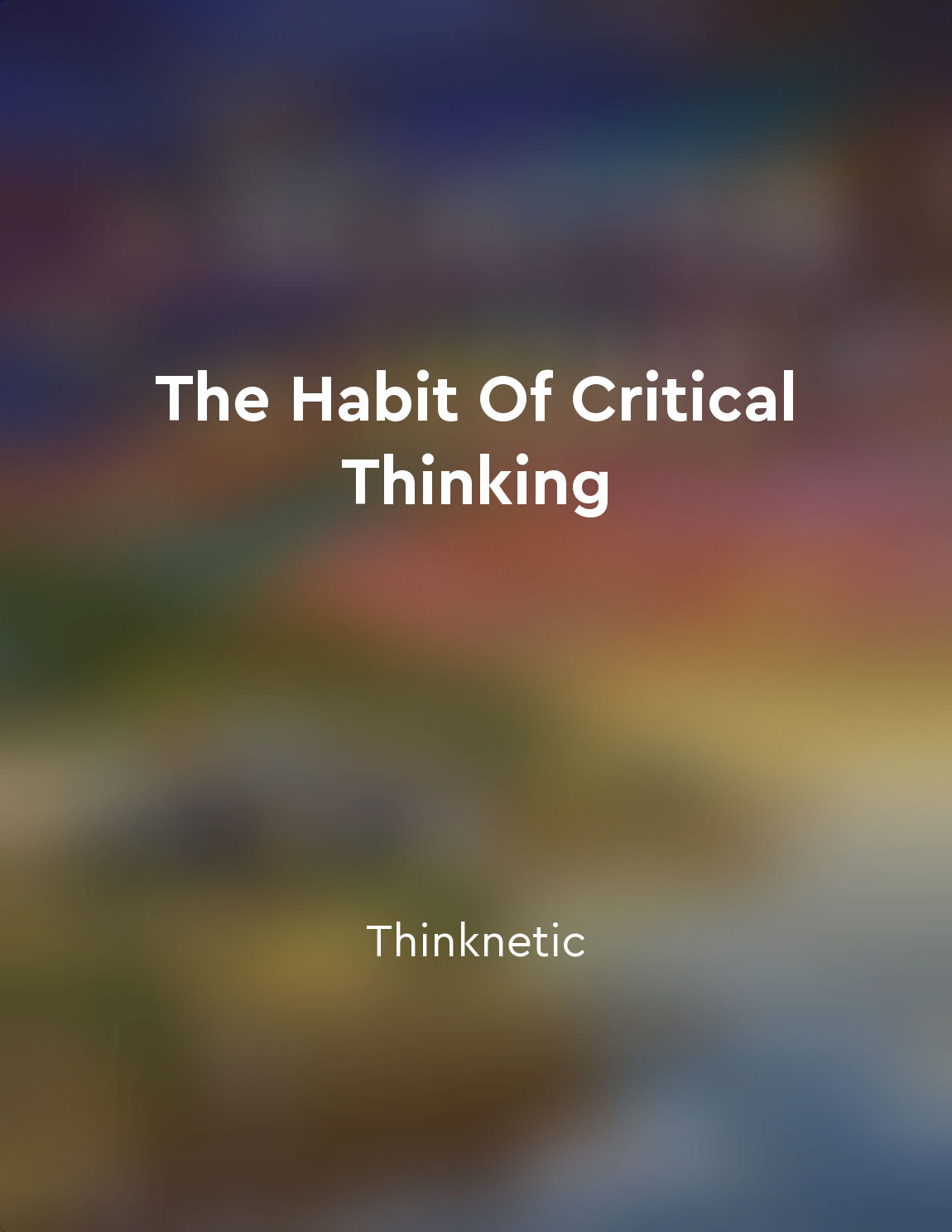Evaluate sources critically from "summary" of The Critical Thinking Toolkit by Dr. Marlene Caroselli
To evaluate sources critically means to approach information with a discerning eye. It involves looking beyond the surface of a source to determine its credibility and reliability. This skill is essential in today's information age, where we are bombarded with an overwhelming amount of data from various sources. The ability to evaluate sources critically allows us to separate fact from fiction, truth from propaganda. When evaluating sources critically, it is important to consider the author or organization behind the information. What are their credentials? Are they experts in the field? Do they have a bias or agenda that may influence their perspective? These questions help us determine the trustworthiness of a source and the validity of the information it presents. Another aspect of evaluating sources critically is examining the evidence and reasoning provided to support the claims made. Is the evidence based on solid research and data? Are the arguments logical and coherent? Critical thinkers look for gaps in reasoning, inconsistencies in the evidence, and any potential fallacies that may undermine the credibility of the source. Moreover, critical evaluation of sources involves cross-referencing information with other reputable sources. By comparing multiple sources on the same topic, we can identify patterns, inconsistencies, and areas of agreement or disagreement. This process helps us form a more comprehensive and nuanced understanding of the subject matter. In addition, critical evaluation requires us to consider the context in which the information is presented. Is the source relevant to the topic at hand? Does it provide a historical or cultural perspective that may impact our interpretation? Understanding the context helps us avoid misinterpreting information and making uninformed judgments.- Evaluating sources critically is a vital skill for navigating the vast sea of information in today's world. By approaching information with a critical mindset, we can make more informed decisions, form well-supported opinions, and contribute meaningfully to discussions and debates.
Similar Posts
Use persuasive language to make your argument more compelling
To win an argument, you must use persuasive language that captures the attention of your audience and convinces them of your po...
Confronting uncomfortable truths leads to growth
When we are confronted with uncomfortable truths, it can be challenging. It can make us feel uneasy, upset, or even defensive. ...
Learn to control your impulses
Impulses are like wild horses, ready to gallop away at the slightest provocation. They can lead us to make hasty decisions with...
Inspiring a passion for lifelong learning
The concept of lifelong learning is essential for personal growth and development. It involves a continuous process of acquirin...

Embrace uncertainty
The concept of embracing uncertainty is a fundamental aspect of critical thinking. It involves acknowledging that not everythin...
They engage in selfreflection
Engaging in self-reflection is a crucial aspect of critical thinking. It involves taking the time to pause and consider one's o...
Use technology judiciously as a study tool
It is important to recognize the role that technology plays in our lives as students. While it can be a powerful tool for learn...
Understanding our own ignorance is crucial for learning and growth
The idea that understanding our own ignorance is necessary for learning and growth may seem counterintuitive. After all, aren't...
Emotional agility helps individuals navigate complex emotions and situations
Emotional agility is a crucial skill that allows individuals to effectively manage and navigate their emotions in various compl...

Reflect on Your Progress
As you navigate your academic journey, it is essential to take time to pause and assess how far you have come. Reflecting on yo...

